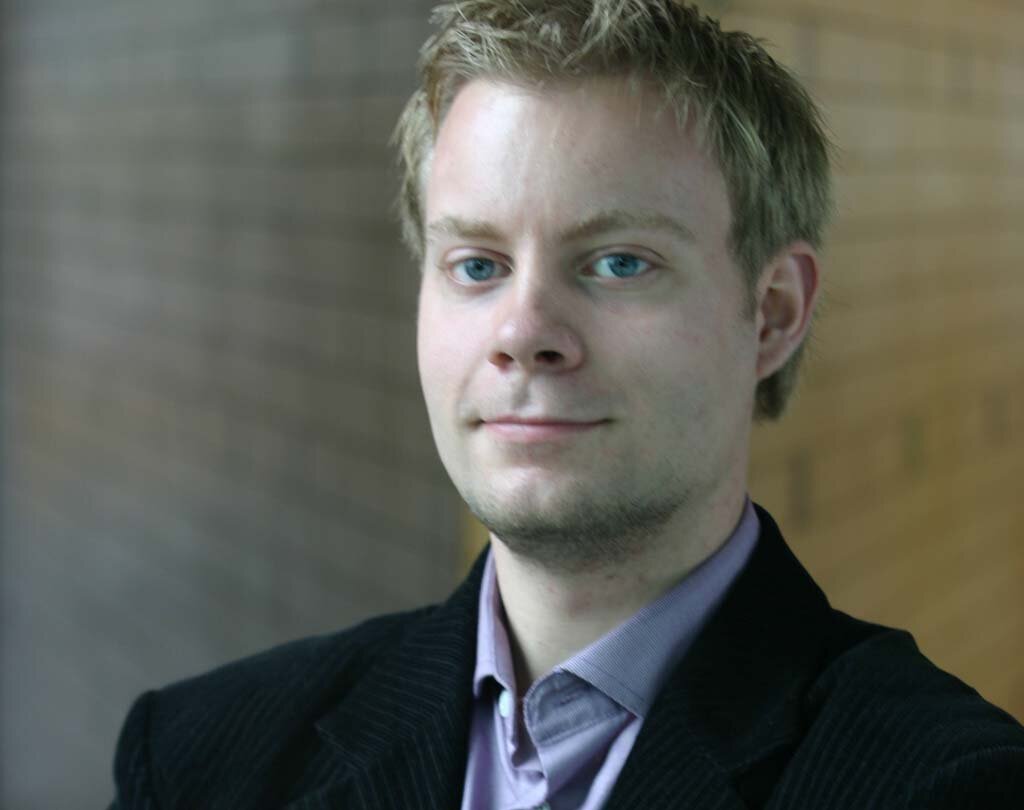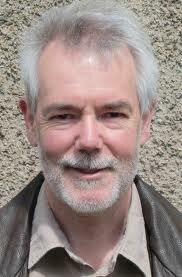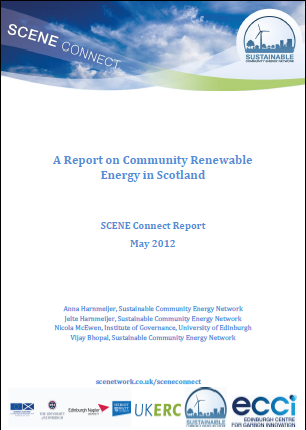Scene Presents
Scene Presents - a broad series of talks, discussions and debates which take place in relaxed settings with high quality speakers. The events cover a variety of topics around economics, energy, sustainable futures, politics and other issues. Our first event took place at the Edinburgh Centre for Carbon Innovation in June and was a great success, with both speakers engaging with the audience in the lecture theatre, and later, over a glass of wine. We will keep this page up to date with further events. If you have an idea for an event or would like to present, please get in touch!
Our next event is:
Winds of Change, with Dr Maitland Mackie and Director David Graham Scott– Thursday 13th September 2012
Why are renewable energy developments still treated with suspicion?
Is local ownership undervalued?
Is the battle against NIMBYism being lost?
When?
18:00 - 20:00, Thursday 13th September 2012
Where?
Edinburgh Centre for Carbon Innovation, 15 South College Street, Edinburgh.
Click here for a map. To reserve a space at the event click here.
What?
This evening, we look to tackle the increasingly controversial questions surrounding wind-development in Scotland. To guide our conversation, we will be joined by two eminent figures who have thought hard about these issues: Dr Maitland Mackie BSc Ag, MA Hons Econ, DBA, FRAgS, CBE, LLD, owner and Chairman of Mackie's; and Glasgow-based documentary film maker, David Graham Scott.
The night will begin with a short screening of David Graham Scott’s film Arcadia, followed by a Q&A session with the director himself. This will lead us into a short talk by Dr. Maitland Mackie, who will discuss the importance of locally-owned renewable energy.
Further Information
David’s film Arcadia (2009) was released as part of the Scottish Documentary Institute ‘Bridging the Gap: Future’ series addresses the ‘NIMBY’ mentality which is often still prevalent in public attitudes towards renewable energy developments such as wind farms.
Click here to view a trailer of David's film.
Following the story of the threat 300-foot wind turbines pose to an estate’s future in the Northern Highlands, this film examines a specific community’s historic relationship to their surrounding natural environment and the complexity of 'for' and 'against' opinions on renewable energy development.
Dr. Mackie's talk will focus on the potential of clean-tech as a cheap and sustainable energy resource in the local rural sector and the need for speeding up of the planning processes and community-owned wind farms. Dr. Mackie is one of the leading figures in promotion of locally-led renewable energy development in Scotland. Mackie’s Ice Cream's first turbine was installed in 2005, followed by two more in 2007. These turbines produce a total of 2.5MW at the farm, 30% is used on the on-site with the other 70% sold to Good Energy.
Dr. Mackie's talk will lead us into a discussion about the about the wider and future implications of the renewable energy boom and how to make these renewable technologies acceptable and desirable to local populations.
The evening will end with casual drinks and further discussion.
Speakers biographies:
Dr. Maitland Mackie
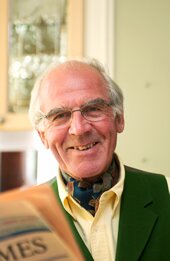
Farming pioneer, politician, educational innovator and Lord-Lieutenant of Aberdeenshire; in recent years Dr. Mackie has become an increasingly prominent figure in the promotion of locally owned models of community-led renewable energy development in Scotland.
Dr. Mackie’s vision is for thousands of rural communities and small investors around the country to club together to take ownership of the next generation of wind farms. In a recent interview he stated, "We're trying to take back the development of wind energy [and put it] into the hands of the landowners and the rural community...Wind energy is one of the major answers for the energy crisis that we're in."
Dr. Mackie has played a key role in the Scottish rural sector throughout his career. As a Vice President of the National Farmers Union of Scotland he helped to move the organisation from a purely political role towards market orientated self help policies. Dr Mackie was also the architect and implementer of the farm assurance movement in Scotland.
Dr. Mackie founded the Scottish Pig Industry Initiatives for the development of the Scottish pig meat sector which was noted for its pioneering of the concept of industry self disciplining to best practice under farm assurance inspection schemes. He received the David Black Award in 1991 for his pig industry work.
He is also a former member of the Agriculture Food Research Council, a former Governor of the Rowett Research Institute, a former Chairman of Grampian Enterprise Ltd, a former Chairman of the Scottish Agricultural College Board and a former member of the Meat and Livestock Commission Research Committee. He is currently a Board member of the Scottish Traditional Skills Training Centre and a member of the Priorities Board for Research in Agriculture.
David Graham Scott
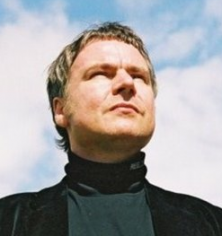
David Graham Scott is a controversial Glasgow-based documentary filmmaker and inspirational public speaker on addiction issues. His highly authored films are unique visions of the world he inhabits and the offbeat characters he encounters.
David has worked on hard-hitting projects including WireBurners, Detox or Die and The Dirty Digger. His films have aired across the BBC at both local (BBC Scotland) and national (network) level. Although ‘Arcadia’ presents a slight departure from Scott’s usual themes, it maintains Scott’s focus on personal narratives in relation to wider societal issues. ‘Arcadia’ explores a small community’s resistance to a wind farm development project on a site of great familial heritage and natural beauty. The film provokes various questions concerning wider public attitudes to pressing energy issues and how different models such as community ownership might overcome resistance to projects such as wind turbine developments.
Perspectives on Economics & Energy - Friday 22 June 2012
Our last event was: Click here for the full event page
Should we be worrying about energy scarcity, rather than climate change?
Should energy be regarded as a factor of production? If so, how substitutable is it?
Presentations and discussions on:
- “Perspectives on Economics from a Resource and Energy View" by Rembrandt Koppelaar (Institute for Integrated Economic Research)
- "Peak Oil, Climate Change, and Energy Policy" by Euan Mearns (University of Aberdeen)



